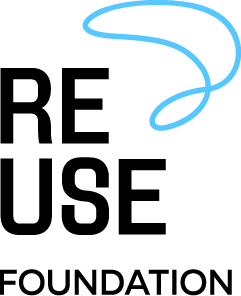Featured
Recycling Exposed As A Lie. (Again) |
|
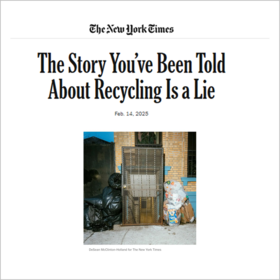
|
A Valentine’s Day article in the New York Times (‘The Story You've Been Told About Recycling Is A Lie’) laid bare the state of recycling and made clear how calling plastic packaging ‘recyclable’ is not a solution but a smokescreen that perpetuates the plastics waste crisis.
The author, Alexander Clapp, says it well and we can’t see a better way than to draw heavily on his words. About plastics he says:
Nowhere does today’s waste trade reach more boggling dimensions than with plastic. The time scales alone are dizzying. Bottles or takeaway cartons that you own for moments embark on arduous, monthslong, carbon-spewing journeys from one end of Earth to another. Upon arrival in villages in Vietnam or the Philippines, for example, some of these objects get chemically reduced — an energy-intensive task that unleashes innumerable toxins and microplastics into local ecosystems. The process’s ability to produce new plastic is at best dubious, but the environmental and health cost is cataclysmic. Plastic waste in the developing world — clogging waterways, exacerbating air pollution, infiltrating human brain tissue — is now linked to the death of hundreds of thousands every year. As Alexander Clapp’s investigation makes clear, calling something ‘recyclable’ allows brands, companies and wealthier nations to absolve themselves of responsibility. They know their plastic packaging gets burnt or incinerated in the West or goes to the Global South, and that the reality is grim: polluted water, poisoned food and worse health for innumerable people and potentially all of us. Recycling alone cannot solve this crisis and it’s time to stop pretending it will. The only real solution is to reduce plastic production and shift to reusable systems that prevent waste from being created in the first place.[Image Credit: © DeSean McClinton-Holland for New York Times] |
Highlights
Study Links Brands To Fracking That Feeds Plastic Production |
|

|
New research links plastic waste to its fossil fuel origins, revealing that major consumer brands source plastic from fracked gas in Texas's Permian Basin—a region dubbed a “carbon bomb.” Ethane from fracking is exported to Europe, primarily by petrochemical giants like INEOS, and turned into packaging for companies such as Coca-Cola, Nestlé and Unilever. These supply chains, once opaque, are now more traceable, exposing the environmental toll of plastic production. Campaigners argue that despite Europe rejecting fracking domestically, it continues to import fracking-derived plastics, externalising pollution and health harms. [Image Credit: © Documerica on Unsplash]
|
UK Targets Plastics In Circular Economy Transition |
|
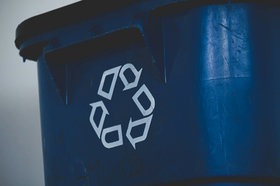
|
The UK Government named chemicals and plastics among five key sectors for its Circular Economy Taskforce to prioritize, aiming to cut waste and boost recycling. Environment Secretary Steve Reed highlighted the need for clearer regulations to help industries transition, with organisations like WRAP, the Chartered Institution of Wastes Management and the Environmental Services Association backing the initiative. Stakeholders stressed the importance of reforms such as digital waste tracking and extended producer responsibility to support reuse and recycling. Reconomy, circular economy specialists, and others called for stable policies to scale circular innovations and reduce plastic waste. [Image Credit: © Sigmund on Unsplash]
|
Chewing Gum Is A Hidden Source of Microplastic Pollution |
|
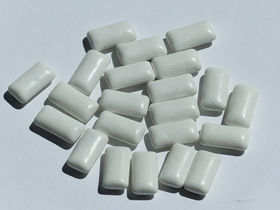
|
Chewing gum can release hundreds of microplastic particles directly into our mouths, according to a new UCLA study. Researchers found that one gram of gum can shed over 100 microplastic fragments, with some brands releasing more than 600. This means frequent gum chewers could unknowingly ingest tens of thousands of microplastics yearly. The study revealed both synthetic and natural gums contain plastic. Though researchers emphasize there’s no immediate health threat, the findings highlight yet another overlooked entry point for microplastics into human bodies. Additionally, improperly discarded gum contributes to plastic pollution in public spaces. The National Confectioners Association highlighted the study authors’ conclusion that "there is no cause for alarm".[Image Credit: © Hans from Pixabay]
|
Refill Stations Tackle Plastic Waste In Singapore Universities |
|

|
Ecoworks, a sustainable startup, partnered with bio-home to launch a one-year pilot refill station at Singaporean universities, offering students a way to reduce single-use plastic waste. Automated stations dispense plant-based cleaning products into customers' own containers, saving money and cutting down on plastic waste. With Singapore discarding 900,000 tonnes of plastic annually, the refill station provides a more convenient, affordable and sustainable alternative to traditional plastic packaging. [Image Credit: © bio-home by Lam Soon]
|
Coca-Cola’s Growing Plastic Use And Ocean Impact |
|
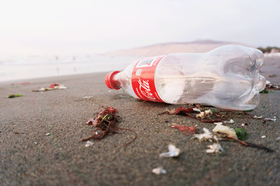
|
Oceana’s new report warns that Coca-Cola’s plastic use could exceed 9.1 billion pounds annually by 2030, a 40% increase from 2018, a rise that could see 1.3 billion pounds of plastic from the company entering the oceans each year, harming marine life. The report argues that recycling won’t solve Coca-Cola’s plastic problem, but increasing reusable packaging could reduce plastic use. Currently, Coca-Cola’s reusable packaging makes up only 10.2% of sales, far below the 26.4% needed to reduce its plastic footprint. Despite a $1 billion investment in recycled content, Coca-Cola’s reliance on single-use plastic continues to harm the environment, drawing public and environmental scrutiny, and a few months ago it discarded its 25% target for reusable packaging. Oceana urges real action from the company and policymakers.[Image Credit: © maria mendiola on Unsplash]
|
Unilever’s 2024 Progress On Plastics and Sustainability |
|
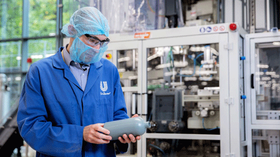
|
Unilever’s 2024 sustainability report highlights key actions in plastic waste reduction as it aims to cut its virgin plastic use by 30% by 2026 and 40% by 2028. Currently, 21% of its packaging uses recycled plastic and 57% is recyclable, reusable or compostable. It’s also focusing on developing alternatives for hard-to-recycle flexible packaging, like sachets. Unilever advocates for global plastic regulations, co-chairing the Business Coalition for a Global Plastics Treaty. [Image Credit: © Unilever]
|
Health Risks Drive Support For Reducing Plastic Production |
|
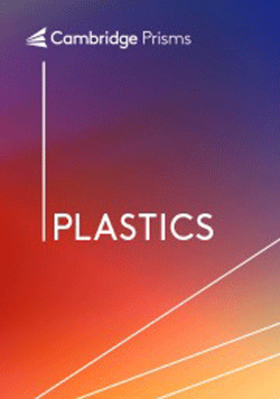
|
A survey, conducted by the London School of Hygiene and Tropical Medicine, of delegates involved in the Global Plastics Treaty negotiations revealed that human health risks are the top concern related to plastic pollution. Delegates prioritized measures to reduce plastic production and eliminate harmful chemicals in plastics, ranking these higher than waste management or recycling improvements. The survey highlighted widespread concerns about the toxic chemicals in plastics, microplastics and their impact on health and the environment. [Image Credit: © Cambridge University Press] |
UK Packaging Tax Could Drive Sustainability, Raise Costs |
|
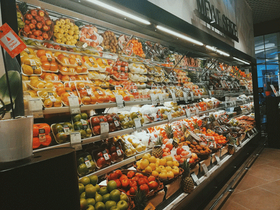
|
The UK’s upcoming Extended Producer Responsibility scheme aims to shift the cost of packaging waste management from taxpayers to businesses, encouraging more sustainable packaging practices. By imposing fees based on the recyclability and weight of packaging materials, businesses will be incentivized to adopt eco-friendly alternatives, such as paper-based packaging. However, concerns exist that some companies may switch to lighter but less recyclable plastics to minimize costs. While the policy aims to enhance recycling systems and reduce environmental impact, it could lead to higher product prices for consumers. Critics also worry that the funds raised might not be properly invested in recycling improvements, potentially undermining the initiative’s goals.[Image Credit: © Damla Özkan on Unsplash]
|
HUL Invests In Lucro To Boost Plastic Recycling |
|
.png?width=280)
|
Hindustan Unilever acquired a 14.3% stake in Lucro, a plastic recycling company, as part of its strategy to meet upcoming packaging regulations. This investment aims to enhance HUL's capacity to recycle and reuse plastic packaging, aligning with India's evolving Extended Producer Responsibility framework. Lucro's proprietary technology enables the recycling of multi-layered and flexible plastic packaging, which are typically challenging to process. [Image Credit: © Unilever]
|
WRAP Supports Ban On Plastic Packaging For Fresh Produce |
|
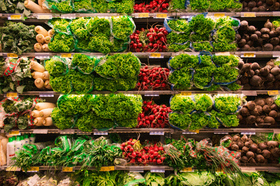
|
WRAP UK is calling for a ban on plastic packaging for 21 fresh produce items, including apples, bananas and potatoes. Only 19% of fresh produce is sold loose in the UK, contributing to 2.5 million tonnes of waste annually, with £4 billion worth of food that could have been eaten. WRAP’s Love Food Hate Waste campaign highlights how packaged produce forces consumers to buy more than needed, increasing waste. Selling more produce loose could prevent 60,000 tonnes of food waste annually. WRAP is using Food Waste Action Week to push for consumer and retailer action, encouraging the sale of loose fruit and vegetables ahead of upcoming food waste collection changes for businesses in England.[Image Credit: © Matheus Cenali on Pexels]
|
UK’s Marine Conservation Society Sees Rise In Beach Plastic |
|
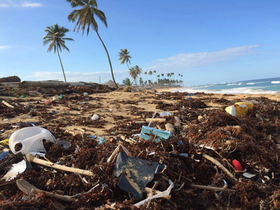
|
The Marine Conservation Society’s State of our Beaches 2024 report reveals a nearly 10% increase in plastic waste on UK beaches compared to 2023. Volunteers collected almost 765,000 pieces of litter, averaging 170 items per 100 metres of coastline. Plastic fragments and single-use plastic packets were the most common items. Calling for stronger policies to reduce single-use plastics and improve waste management, the charity also supports a Deposit Return Scheme starting in 2027.[Image Credit: © Dustan Woodhouse on Unsplash]
|
P&G’s Innovative Sustainable Packaging Reduces Plastic Waste |
|

|
On Global Recycling Day 2025, Procter & Gamble highlighted several award-winning packaging designs marking advancements in plastic waste reduction. Tide evo introduced a recyclable paper-based detergent tile, eliminating plastic bottles. The Air Capsule eCommerce package improves shipping efficiency and recyclability. Dawn Powerwash™ Dish Spray promotes reusability with a recyclable spray trigger, and Head & Shoulders BARE reduces plastic by 45% with a fully recyclable, mono-material design. [Image Credit: © Procter & Gamble]
|
Global Initiative Seeks New Symbol To Boost Reuse |
|
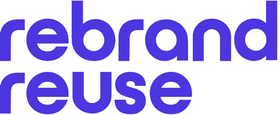
|
Launched by PR3 in the US, the "Rebrand Reuse" initiative invites global designers to create a standard symbol for reusable products and packaging. With only 9% of plastic waste recycled globally, PR3 aims to encourage a shift from single-use packaging to reuse, which could reduce plastic production by 90% and emissions by 80%. The new symbol will help consumers identify reusable items and encourage proper use within a unified system. PR3 is also developing global reuse standards for container design, collection, labeling and washing.[Image Credit: © RESOLVE]
|
Walmart To Miss 2025 Plastic Reduction Goals |
|
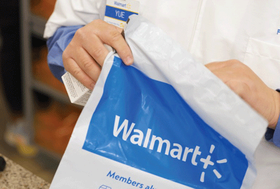
|
Walmart expects to miss its 2025 plastic reduction targets, citing legislative gaps, poor infrastructure and a lack of high-quality post-consumer recycled plastic. Despite aiming for 100% recyclable, reusable, or compostable packaging by 2025, only 68% of its packaging met this standard in 2023. PCR content in North American and global private-brand plastic packaging reached just 8%—far short of the 20% target. Virgin plastic use increased by 6% instead of declining, driven by product category growth. Walmart points to limited PCR availability, regulatory barriers and consumer behavior as key challenges. [Image Credit: © Walmart Inc.]
|
India Mandates Recycled Plastic In FMCG Packaging From April |
|
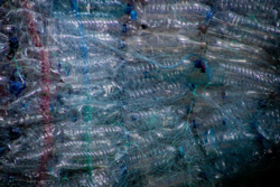
|
Starting April 1, India’s environment ministry will enforce guidelines requiring recycled and reused plastic in packaging for FMCG, a sector facing challenges meeting these norms due to limited food-grade plastic recycling and reuse capacity. Industry leaders requested leniency, citing difficulties in ensuring food safety for recycled packaging under both the environment ministry and FSSAI regulations. [Image Credit: © Magda Ehlers from Pexels]
|
Global Reuse Summit Calls For Stronger UK Reuse Policies |
|
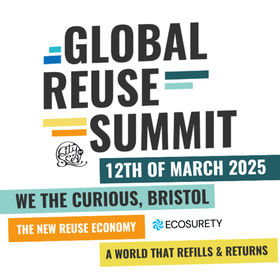
|
The second Global Reuse Summit, hosted by City to Sea and Ecosurety, urged the UK government to implement robust policies supporting reusable packaging. Industry leaders, including representatives from Tesco, WRAP and Greenpeace, discussed scaling reuse systems and building consumer trust. Lessons from France’s reuse model, funded by 5% of EPR fees, were highlighted as a successful example. A new briefing paper from Eunomia outlined key steps for the UK, including mandatory sector targets and quality standards for reuse. Research shows 75% of UK consumers support reusable packaging. [Image Credit: © Refill.org] |
SC Johnson’s Exhibit Highlights Plastic Waste Crisis And Solutions |
|

|
The Blue Paradox, an SC Johnson and Conservation International exhibit at Chicago’s Museum of Science and Industry, exposes the scale of ocean plastic pollution and urges action. It’s an immersive 25,000-sq-ft exhibit tracing plastic's journey from production to ocean accumulation, highlighting its environmental toll. A conveyor belt of plastic waste and real-time plastic production ticker underscore society’s reliance on plastic. A plastic footprint calculator and pledge wall encourage visitors to reduce plastic use and push for policy changes. [Image Credit: © S.C. Johnson & Son Inc.]
|
Reuse Systems Key To Reducing Plastic Pollution Globally |
|
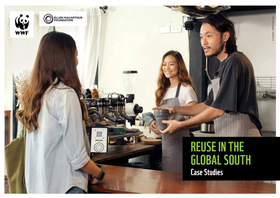
|
Moving from single-use plastics to reuse models offers significant environmental, economic and social benefits. Reuse systems can reduce ocean plastic pollution by over 20%, cut virgin material use and lower greenhouse gas emissions. The Global South, with long-standing reuse practices, presents a valuable foundation for scaling circular economy models. However, challenges like access to finance, regulatory restrictions and lack of standardization hinder progress. Coordinated global action, including support for the informal sector and clear policy frameworks, is essential. Policies such as tax incentives, disincentives for single-use plastics, and clear reuse targets can help drive the transition. [Image Credit: © Plastic Smart Cities]
|
Aldi Ends Refill Pilot, Leaving Plastic Waste Solutions Unresolved |
|
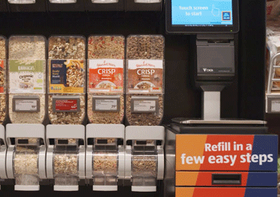
|
Aldi's pilot project to reduce plastic waste through refillable packaging for dry goods ends as funding from Innovate UK concludes. The pilot faced challenges, including low retailer uptake and the cost-of-living crisis. The Refill Coalition, launched in 2020, aimed to find scalable alternatives for single-use plastic but struggled with wider retailer adoption. While Aldi's trial showed positive consumer engagement and environmental benefits, it remains limited in scale. Ocado continues with its reusable packaging pilot; other companies, including Unilever and Diageo, are exploring refillable systems in various regions, signaling ongoing efforts to combat plastic waste despite challenges.[Image Credit: © Unpackaged Systems Ltd/Refill Coalition]
|
Henkel Increased Recycled Plastic In Packaging |
|
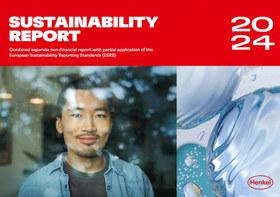
|
Henkel’s 2024 sustainability report highlights key progress in climate protection, circular economy and social responsibility. It has increased the proportion of recycled plastic in consumer packaging to 25%, with plans to reach 30% by year-end. Notable examples include liquid detergent and hair care packaging in Europe, with up to 50% post-consumer recyclate, and 100% recycled plastic packaging for Dial liquid soap in North America. Henkel is also designing 89% of its consumer packaging for recycling. [Image Credit: © Henkel AG & Co. KGaA]
|
US Report Identifies Top Retail Sectors For Reusable Packaging |
|
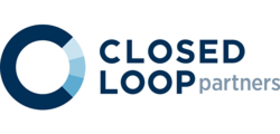
|
Closed Loop Partners' Center for the Circular Economy and the US Plastics Pact released a report identifying five high-potential product categories for reusable packaging in the US: prepared food, fresh produce, beverage bottles, home care products and personal care products. It emphasizes that targeting these categories can drive significant reductions in single-use plastic waste. Retail stores are highlighted as key to scaling reuse systems through improved supply chains and consumer engagement. [Image Credit: © Closed Loop Partners]
|
New Air-Moisture Process Breaks Down PET Plastic Efficiently |
|
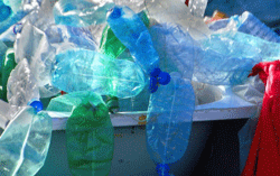
|
Northwestern University researchers developed a solvent-free method to break down PET plastic using moisture from air. A molybdenum catalyst combined with activated carbon breaks PET’s chemical bonds and the broken pieces react with trace moisture in air to produce valuable terephthalic acid used in polyesters. The process is fast (94% TPA recovery took four hours), selective and works on mixed plastics without sorting. Unlike traditional recycling, it avoids toxic byproducts and harsh conditions, offering a cleaner, more cost-effective solution. [Image Credit: © VIVIANE M. from Pixabay]
|
Microplastics Threaten Global Food Security And Ecosystem Health |
|
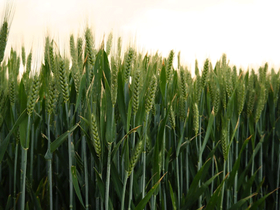
|
A new study reveals that microplastic pollution is damaging plants' ability to photosynthesize, leading to an estimated loss of up to 14% in global staple crop yields, such as wheat, rice and maize. This could exacerbate global hunger, potentially increasing the number of people at risk of starvation by 400 million within two decades. Microplastics also affect marine algae and disrupt ecosystems, reducing fish and seafood production. While the study emphasizes the urgent need for action to combat plastic pollution, researchers caution that further data is required for more accurate predictions. [Image Credit: © Thomas Vermeersch on Unsplash]
|
Refill Coalition Trials Show Success For Reusable Packaging Solutions |
|
.png?width=280)
|
The Refill Coalition, including Ocado and Aldi UK, demonstrated the viability of refillable packaging through successful trials both in-store and online. Ocado’s online system, which involves pre-filled reusable vessels, has seen positive feedback, with 16% of sales replacing single-use packaging. Aldi's in-store trial reached up to 50% refill sales in some weeks, with high customer satisfaction. The Coalition is now sharing insights through a webinar and white paper, aiming to promote scalable refill solutions. [Image Credit: © Sarah Chai on Pexels]
|
New York Bill Seeks To Cut Plastic Packaging By 30% |
|

|
Environmental advocates are pushing for the Packaging Reduction and Recycling Infrastructure Act, a state law that aims to reduce plastic packaging use in New York by 30% over 12 years. The bill proposes charging companies for excessive packaging and distributing those funds to municipalities. It also seeks to ban PFAS chemicals in packaging. Despite passing in the Senate last year, the bill didn't progress in the Assembly. Advocates like Judith Enck argue that without legislation, plastic waste will continue to burden communities. [Image Credit: © FlyD on Unsplash]
|
California Delays Plastic Reduction Law, Raising Environmental Concerns |
|

|
California missed a key deadline to implement its Plastic Pollution Producer Responsibility Act (SB 54), which was designed to cut plastic waste by 23 million tons over 10 years. It mandates reductions in single-use plastic packaging, requiring it to be recyclable or compostable, and holds producers financially accountable. Governor Gavin Newsom delayed the regulations, citing cost concerns, sparking criticism from environmental groups. [Image Credit: © State of California]
|
Unilever Expands Refill And Reuse Solutions |
|
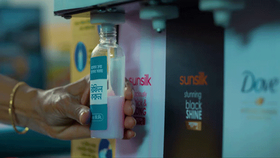
|
Unilever says it’s committed to ensuring that 100% of its plastic packaging is reusable, recyclable or compostable by 2030 for rigid plastics and by 2035 for flexible plastics. Since 2018, the company has run over 50 refill and reuse pilot projects globally, gaining insights to reduce single-use plastics, particularly in flexible sachets. In Indonesia, Sri Lanka and Bangladesh, Unilever developed customized refill solutions tailored to local markets, helping to reduce plastic use by offering affordable, accessible alternatives. Unilever emphasizes that scaling these solutions requires regulatory support, industry collaboration and infrastructure development to transition from individual pilots to broader multi-brand models.[Image Credit: © Unilever]
|
India Mandates 30% Recycled Plastic In Beverage Packaging By 2025 |
|
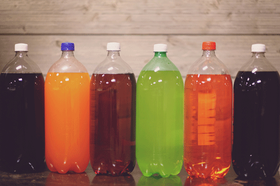
|
India's Ministry of Environment mandated that beverage manufacturers use 30% recycled plastic (rPET) in rigid packaging by April 1 with annual 10 percentage point increases towards 60% by 2028. This regulation aims to reduce plastic waste and promote a circular economy but presents challenges for companies like Coca-Cola and PepsiCo. Key issues include sourcing sufficient rPET, ensuring food-grade quality, and upgrading recycling infrastructure. [Image Credit: © Amanda Shepherd on Unsplash]
|
England's Household Recycling Rates Drop In 2022 |
|
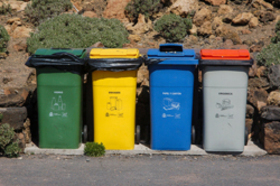
|
Recycling rates for “waste from households” in England fell to 43.4% in 2022, down from 44.1% in 2021, according to the Department for Environment, Food & Rural Affairs. The total amount of waste recycled fell by 8.6% to 9.3 million tonnes. Almost half of local authority-managed waste went to incineration and 7.2% to landfills. Recycling rates varied widely across local authorities, from 17.7% to 61.6%. [Image Credit: © Jan van der Wolf from Pexels]
|
UK Consumers Demand Action On Plastic Packaging Reduction |
|
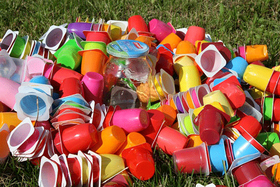
|
New research by Aquapak reveals that two-thirds of UK consumers feel retailers and brands are not doing enough to reduce plastic packaging. Most consumers want packaging to be replaced with recyclable, environmentally-friendly materials, such as paper-based options. Over half plan to avoid single-use plastic packaging in the next year, and 46% will stop buying products with hard-to-recycle packaging altogether within three years. A third say they are willing to pay more for products with fully recyclable packaging. [Image Credit: © EKM-Mittelsachsen from Pixabay]
|
World Refill Day Promotes Refill To Reduce Plastic Waste |
|
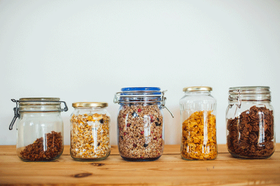
|
World Refill Day, held annually on June 16th, highlights the importance of reducing single-use plastic by encouraging the use of refillable alternatives, particularly water bottles. Founded by City to Sea, the event aims to raise awareness about plastic pollution and empower individuals to make sustainable choices, such as using reusable water bottles, coffee cups and shopping bags. Participants are encouraged to share tips, challenges, and success stories on social media, promoting refill stations and eco-friendly habits. [Image Credit: © Markus Spiske on Unsplash]
|
Unilever Bangladesh Launches Life Insurance For Waste Workers |
|
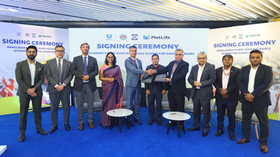
|
Unilever Bangladesh launched the country’s first life insurance coverage for plastic waste workers as part of its plastic waste management initiative in Chattogram. Launched in 2020, the initiative aims to collect more plastic waste than Unilever uses in its product packaging. In collaboration with MetLife Bangladesh and YPSA, the program provides 1,827 waste workers with life and health insurance, ensuring financial stability and covering healthcare costs. [Image Credit: © MetLife, Inc.]
|
New Campaign Targets Plastic Waste Through Collective Action |
|

|
A new advocacy campaign, led by SC Johnson and partners like Conservation International and Plastic Bank, aims to combat the growing plastic waste crisis through a campaign featuring Zuzu, a hermit crab on a journey to recycle a bottle, symbolizing the need for greater action. A survey reveals that most Americans want businesses to take more responsibility and the campaign promotes policies like Extended Producer Responsibility to improve recycling rates, and encourages people to sign petitions, raise awareness and take action to address the issue.[Image Credit: © S.C. Johnson & Son Inc.]
|
